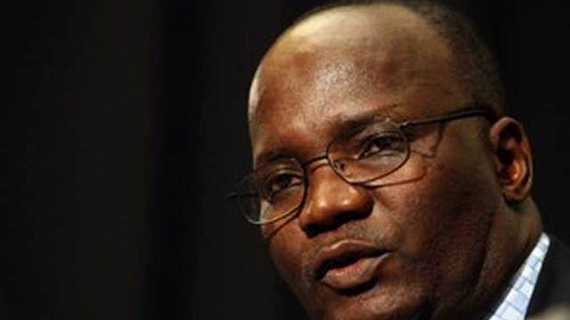
Returning Media, Information and Broadcasting Services minister Jonathan Moyo has taken the journalism fraternity by surprise, with a charm offensive targeting the private media amid renewed hope that the polarisation in the industry would soon come to an end.
Njabulo Ncube Deputy Editor
Zanu PF and the independent media have always had a frosty relationship, which hit rock bottom during Moyo’s first tenure as Information minister that ended in 2005.
Several newspapers were shut down and a number of journalists were forced into exile after the government introduced draconian media legislation such as the Access to Information and Protection of Privacy Act.
Moyo’s successors, Sikhanyiso Ndlovu, the late Tichaona Jokonya and Webster Shamu tried to mend relations, but the polarisation remained.
During the constitution-making exercise, some Zanu PF supporters even suggested the death penalty for journalists critical of the government.
President Robert Mugabe’s decision to reappoint Moyo to the information portfolio last month had triggered fears of a return to the “dark days”.
However, to the surprise of many in the past few weeks, the former Tsholotsho North MP has been engaging media organisations and journalists from across the divide consulting on issues affecting the industry.
- Chamisa under fire over US$120K donation
- Mavhunga puts DeMbare into Chibuku quarterfinals
- Pension funds bet on Cabora Bassa oilfields
- Councils defy govt fire tender directive
Keep Reading
The Zanu PF strategist visited the Daily News in Harare on Monday and is today expected at Alpha Media Holdings, publishers of the Southern Eye, Southern Eye on Sunday, NewsDay, The Standard and Zimbabwe Independent, to familiarise himself with the country’s biggest private media organisation.
Foster Dongozi, secretary-general of the Zimbabwe Union of Journalists yesterday said Moyo’s new approach would help to heal the rift in the media industry.
“If the Media, Information and Broadcasting Services minister can go and visit a private newspaper such as the Daily News, ordinary employees will certainly have no problems to interact with their colleagues,” he said.
“His stance creates room to effectively rid the media of polarisation.
“Secondly this appears to be a Zanu PF strategy of rebranding the party.
“In the run-up to polls, the strategy was premised on no to violence.
“Now it seems it is to accommodate the media. It wants to reduce choruses of criticism as it grapples with how to deal with delivery of election promises.”
Nyasha Nyakunu, the acting national director of the Media Institute of Southern Africa, weighed in saying Moyo’s “charm offensive” was commendable.
“Moyo seems prepared to engage. His actions could have a cascading effect on the media divide among journalists in the private and public media,” he said.
“Let us not judge Moyo because of what he is perceived to have done in the past, but what he is going to do for the future. Let’s give him the benefit of the doubt,” Nyakuni said.
Outgoing Voluntary Media Council of Zimbabwe executive director Takura Zhangazha said Moyo’s move was a good starting point in normalising the media industry.
However, MDC-T spokesperson for Harare Obert Gutu launched a tirade against Moyo saying his overtures were not sincere. Gutu charged that Moyo’s actions were “manifestly grotesque, mischievous, devious, chameleonic and dangerous in the extreme. A leopard will not change its spots”, the former Justice deputy minister said.










